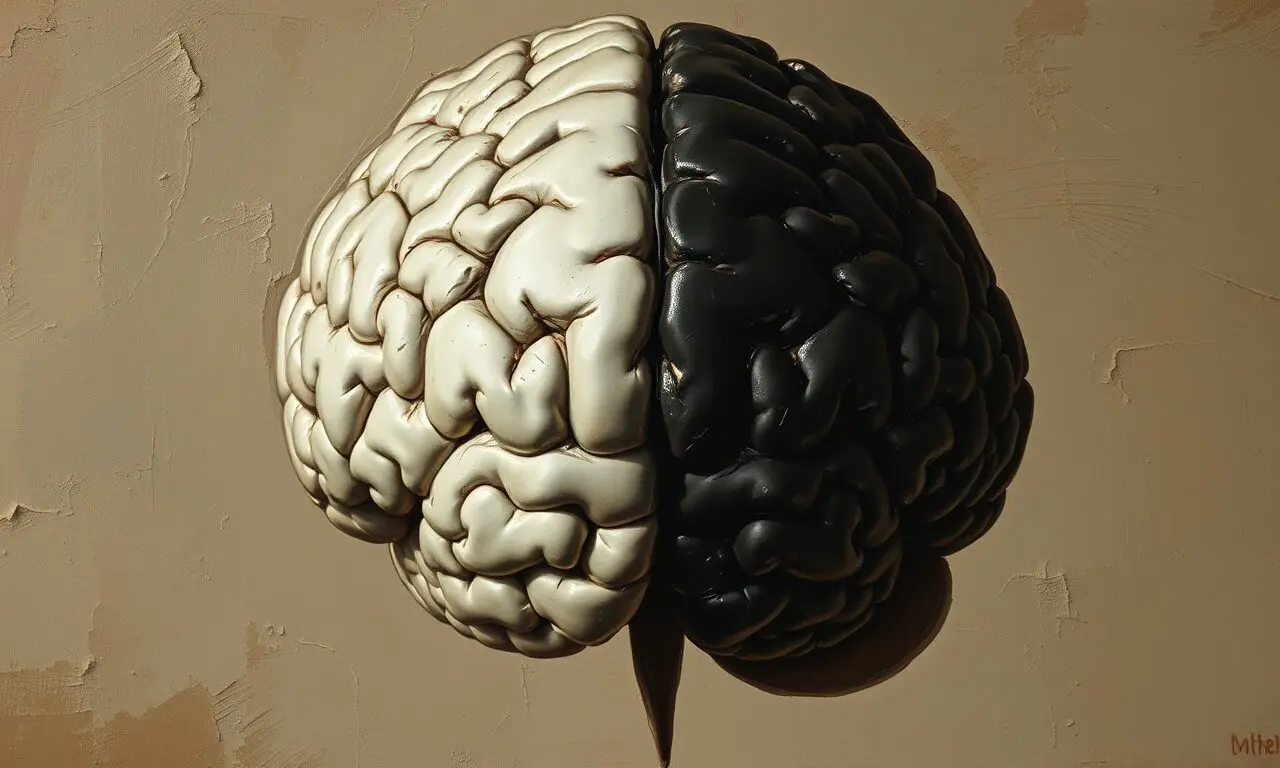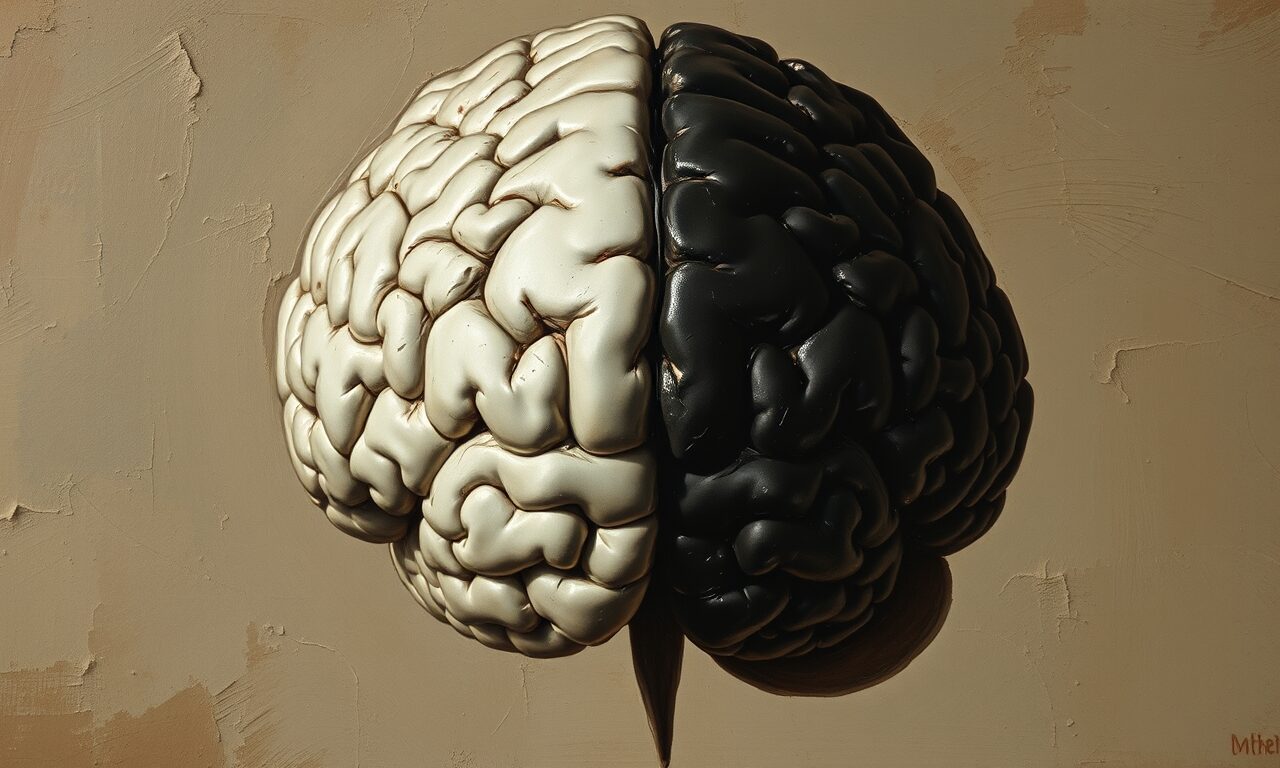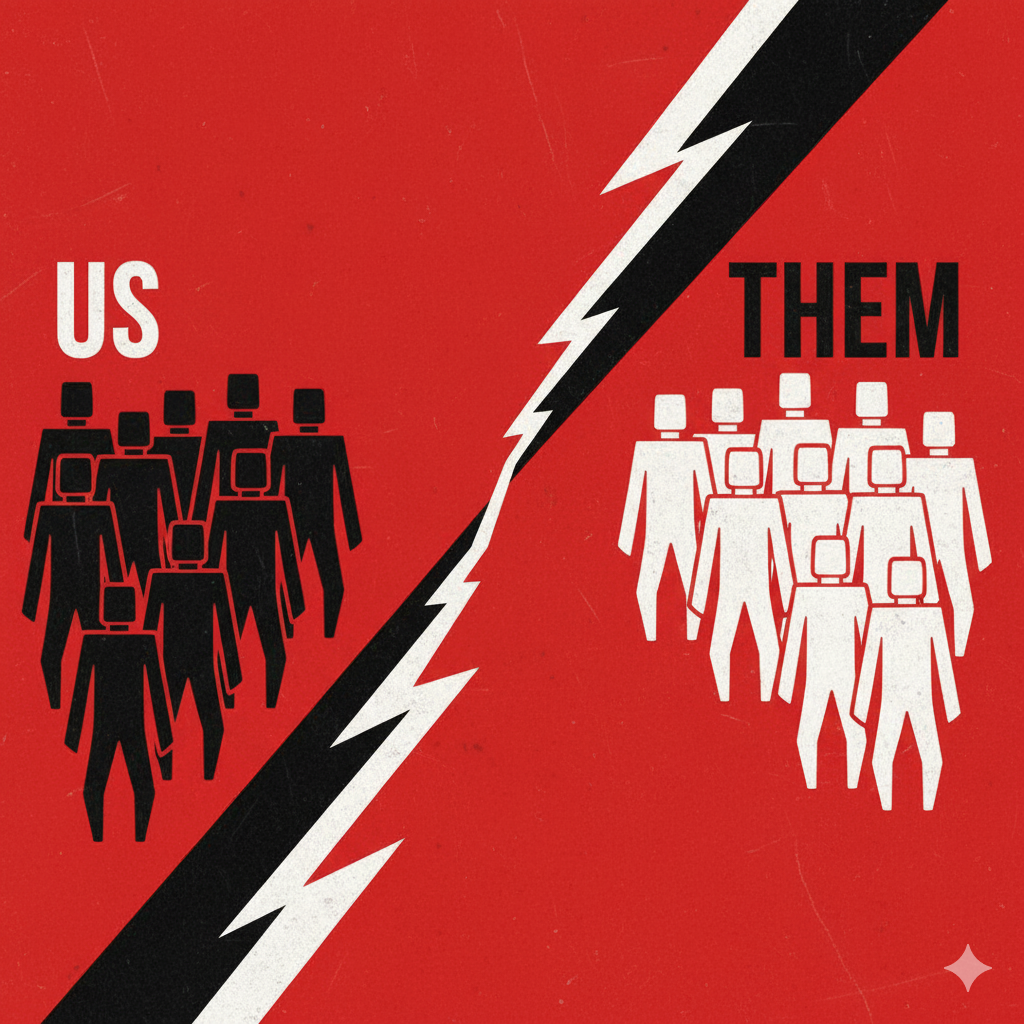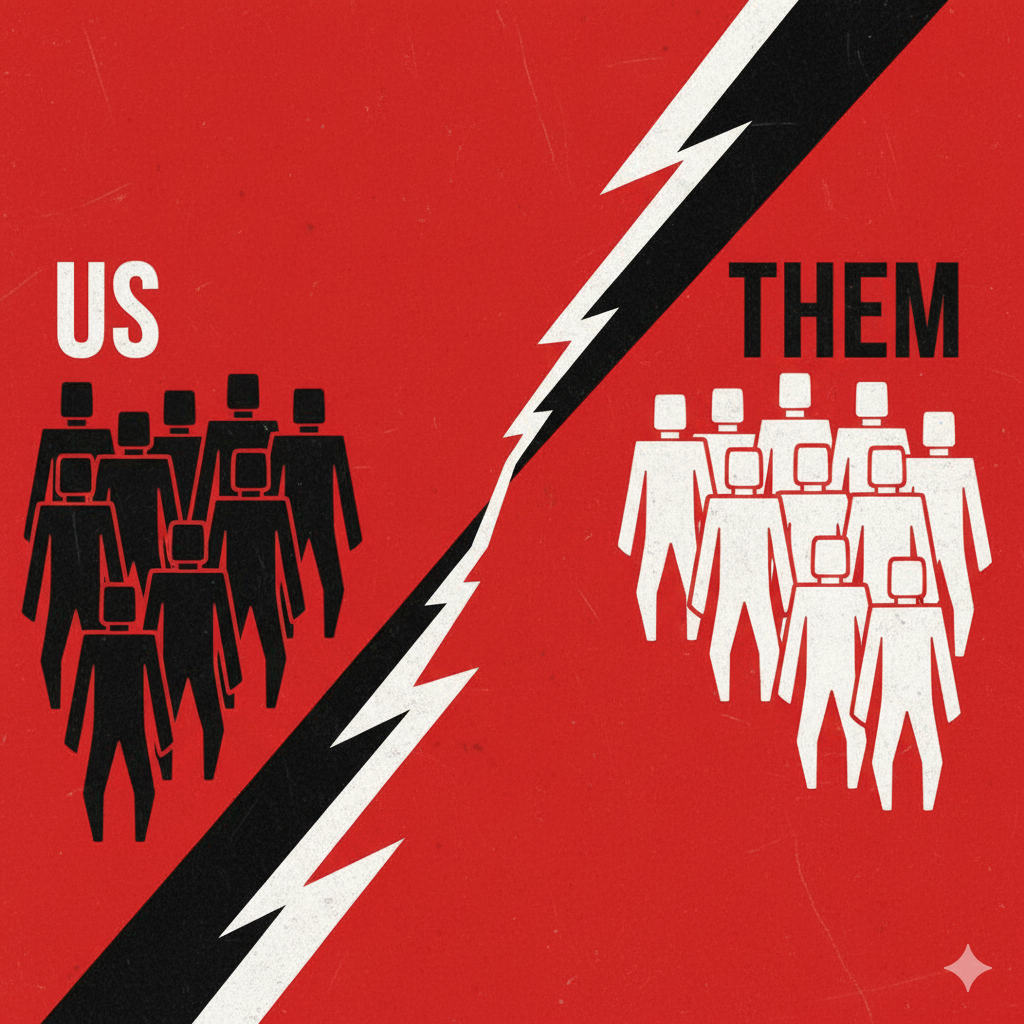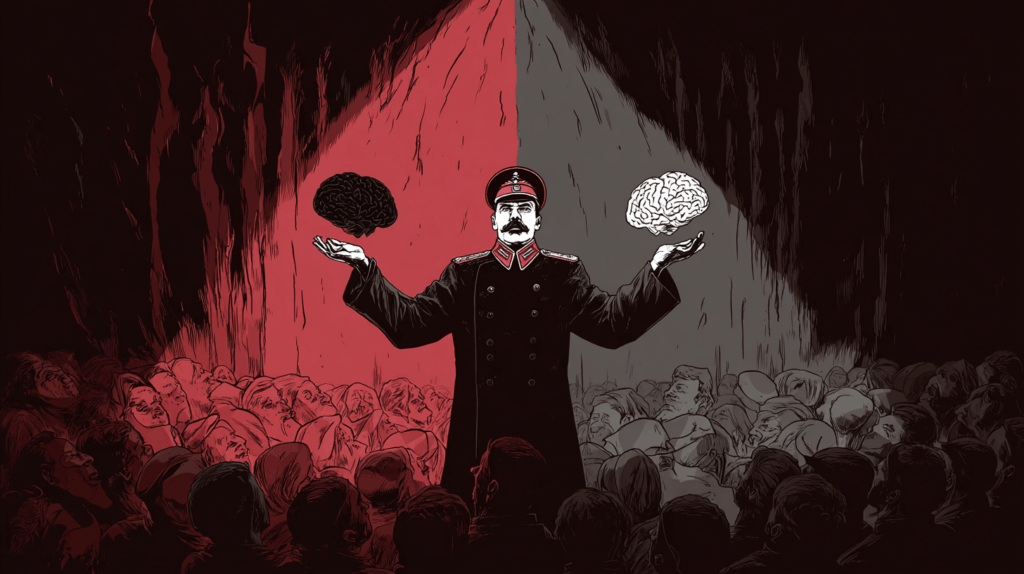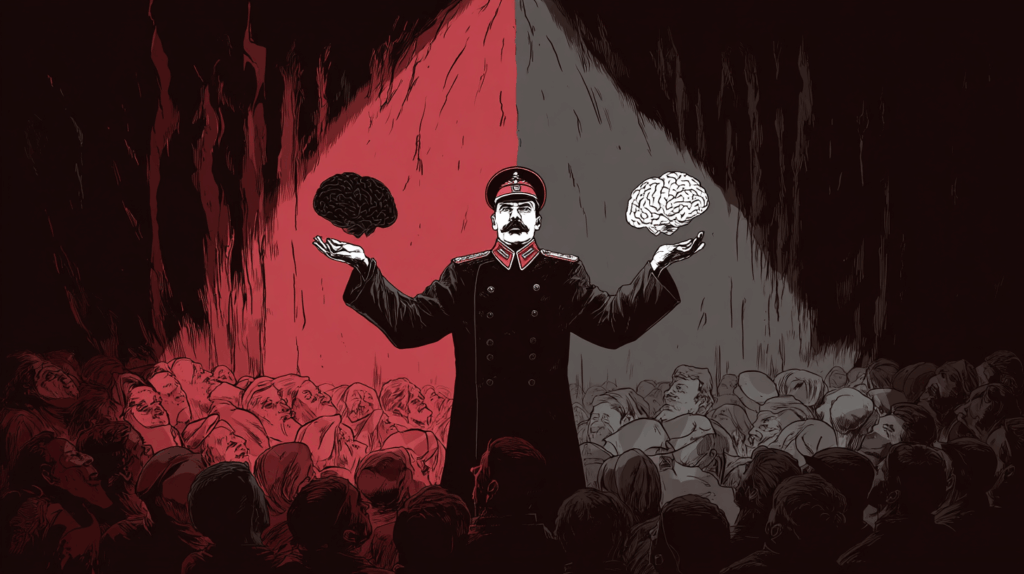Sometimes our minds play tricks on us. They can convince us that untrue things are true, or vice versa.
Cognitive distortions are bad mental habits. They’re patterns of thinking that tend to be negatively slanted, inaccurate, and often repetitive — the very opposite of healthy, critical thinking.
These unhelpful ways of thinking can limit one’s ability to function and excel in the world. Cognitive distortions are linked to anxiety, depression, addiction, and eating disorders. They reinforce negative thinking loops, which tend to compound and worsen over time.
Irrational thinking: And how to counter it
Every day, our minds take shortcuts to process the overwhelming amount of information we encounter. These shortcuts—cognitive distortions—helped our ancestors survive in environments where quick judgments meant the difference between life and death. But in today’s complex world, where we’re making decisions about careers, relationships, investments, and strategy, these same mental patterns can systematically lead us astray.
Cognitive distortions are systematic patterns of thought that can lead to inaccurate or irrational conclusions. These distortions often serve as mental traps, skewing our perception of reality and affecting our emotional well-being.

The good news? Simply knowing these distortions (as well as other common psychological biases) exist makes you a better thinker. Research in metacognition shows that awareness is the first step toward correction. You can’t debug code you don’t know is buggy, and you can’t fix thinking patterns you can’t see.
Here’s the hard truth: everyone experiences these distortions. The difference between mediocre and exceptional decision-makers isn’t that one group never falls into these traps—it’s that they’ve trained themselves to spot the patterns, pause, and course-correct. They’ve built systems to counteract their brain’s default programming.
Types of cognitive distortion
What types of cognitive distortion should we be aware of? Let’s delve into three common types: emotional reasoning, counterfactual thinking, and catastrophizing.
- Emotional Reasoning: This distortion involves using one’s emotions as a barometer for truth. For example, if you feel anxious, you might conclude that something bad is going to happen, even if there’s no objective evidence to support that belief. Emotional reasoning can create a self-perpetuating cycle: your emotions validate your distorted thoughts, which in turn intensify your emotions.
- Counterfactual Thinking: This involves imagining alternative scenarios that could have occurred but didn’t. While this can be useful for problem-solving and learning, it becomes a cognitive distortion when it leads to excessive rumination and regret. For instance, thinking “If only I had done X, then Y wouldn’t have happened” can make you stuck in a loop of what-ifs, preventing you from moving forward.
- Catastrophizing: This is the tendency to imagine the worst possible outcome in any given situation. It’s like always expecting a minor stumble to turn into a catastrophic fall. This distortion can lead to heightened stress and anxiety, as you’re constantly bracing for disaster.
But there are many more mental pitfalls to watch out for besides just these 3. The table below catalogues some of the most common cognitive distortions that shape (and warp) human thinking. As you read through them, you’ll likely recognize patterns from your own mental habits. That moment of recognition isn’t a weakness—it’s the beginning of cognitive sovereignty. The path to better decisions starts with knowing when your brain is trying to take shortcuts, and choosing to think deliberately instead.
Consider this your debugging toolkit for the most important software you’ll ever run: your own mind.
Cognitive distortions list
| Cognitive distortion | Explanation | Example |
|---|---|---|
| all-or-nothing thinking | viewing everything in absolute and extremely polarized terms | “nothing good ever happens” or “I’m always behind” |
| blaming | focusing on other people as source of your negative feelings, & refusing to take responsibility for changing yourself; or conversely, blaming yourself harshly for things that were out of your control | “It’s my boss’s fault I’m always stressed at work, or conversely, “It’s all my fault that the project failed, even though I had no control over the budget cuts.” |
| catastrophizing | belief that disaster will strike no matter what, and that what will happen will be too awful to bear | If I don’t get this promotion, my life will be ruined and I’ll end up homeless. |
| counterfactual thinking | A kind of mental bargaining or longing to live in the alternate timeline where one had made a different decision | If only I had studied harder for that exam, I wouldn’t be in this situation now. |
| dichotomous thinking | viewing events or people in all-or-nothing terms | “If I don’t get a perfect score on this test, then I’m a complete failure.” |
| discounting positives | claiming that positive things you or others do are trivial, or ignoring good things that have happened to you | “I got a promotion, but it’s not a big deal; anyone could have done it.” |
| emotional reasoning | letting feelings guide interpretation of reality; a way of judging yourself or your circumstances based on your emotions | “I feel like a failure, so I must be one.” |
| filtering | mentally “filters out” the positive aspects of a situation while magnifying the negative aspects | Even though I got a promotion and a raise, I can’t stop thinking about the one negative comment my boss made during my performance review. |
| fortune-telling | predicting the future negatively | I just know I’m going to fail this test, even though I’ve studied for weeks. |
| framing effects | tendency for decisions to be shaped by inconsequential features of choice problems | Choosing the “90% fat-free” yogurt over the “10% fat” yogurt, even though they are nutritionally identical, because the positive framing sounds healthier. |
| halo effect | belief that one’s success in a domain automagically qualifies them to have skills and expertise in other areas | Because someone is a successful actor, I assume they must also be a brilliant political commentator. |
| illusory correlation | tendency to perceive a relationship between two variables when no relation exists | Every time I wash my car, it rains, so I must be causing the rain. |
| inability to disconfirm | reject any evidence or arguments that might contradict negative thoughts | Despite being shown evidence of her good work, she clung to the belief that she was incompetent. |
| intuitive heuristics | tendency when faced with a difficult question of answering an easier question instead, typically without noticing the substitution | When asked if they are a happy person, someone might answer if they are happy right now, instead of considering their overall happiness. |
| just-world hypothesis | belief that good things tend to happen to good people, while bad things tend to happen to bad people | She believes that because she works hard and is a good person, she is guaranteed to win the lottery, while bad things only happen to those who deserve it. |
| labeling | assigning global negative traits to self & others; making a judgment about yourself or someone else as a person, versus seeing the behavior as something they did that doesn’t define them as an individual | “I’m a complete idiot for making that mistake,” instead of “I made a mistake.” |
| ludic fallacy | in assessing the potential amount of risk in a system or decision, mistaking the real randomness of life for the well-defined risk of casinos | A gambler believes that since a roulette wheel has landed on red five times in a row, it’s more likely to land on black next, mistaking the independent probability of each spin for a predictable pattern. |
| magical thinking | a way of imagining you can wish reality into existence through the sheer force of your mind. Part of a child developmental phase that not everyone grows out of. | If I just wish hard enough, I can make my dream job appear without applying for it. |
| magnification | exaggerating the importance of flaws and problems while minimizing the impact of desirable qualities and achievements | Even though I successfully completed the complex project, I can’t stop focusing on the minor typo I made in one email. |
| mind reading | assuming what someone is thinking w/o sufficient evidence; jumping to conclusions | My boss didn’t say good morning, so she must be angry with me. |
| negative filtering | focusing exclusively on negatives & ignoring positives | Even after receiving a glowing performance review, she could only dwell on the one minor suggestion for improvement. |
| nominal realism | child development phase where names of objects aren’t just symbols but intrinsic parts of the objects. Sometimes called word realism, and related to magical thinking | A child believing that if you call a dog a “cat,” it will actually become a cat, demonstrates nominal realism. |
| overgeneralizing | making a rule or predicting globally negative patterns on the basis of single incident | Because I tripped on the sidewalk today, I know it’s going to be a terrible week. |
| projection | attributing qualities to external actors or forces that one feels within and either a) wishes to promote and have echoed back to onself, or b) eradicate or squelch from oneself by believing that the quality exists elsewhere, in others, but not in oneself | He accused his coworker of being lazy, when in reality, he was struggling with his own motivation. |
| provincialism | the tendency to see things only from the point of view of those in charge of our immediate in-groups | She couldn’t understand why anyone would disagree with her team’s strategy, assuming their way was the only correct approach because it’s what her superiors believed. |
| shoulds | a list of ironclad rules one lives and punishes oneself by | “I should always be perfect, and if I’m not, I’m a complete failure.” |
| teleological fallacy | illusion that you know exactly where you’re going, knew exactly where you were going in the past, & that others have succeeded in the past by knowing where they were going | I always knew I would become a successful entrepreneur because every step I took, even the detours, perfectly led me to this point. |
| what if? | keep asking series of ?s on prospective events & being unsatisfied with any answers | What if I fail the exam, and what if that means I’ll never get into college, and what if my whole future is ruined because of this one test? |
More related to cognitive distortions:
30 Common psychological biases ↗
These systematic errors in our thinking and logic affect our everyday choices, behaviors, and evaluations of others.
Top Mental Models for Thinkers ↗
Model thinking is an excellent way of improving our cognition and decision making abilities.
24 Logical fallacies list ↗
Recognizing and avoiding logical fallacies is essential for critical thinking and effective communication.
